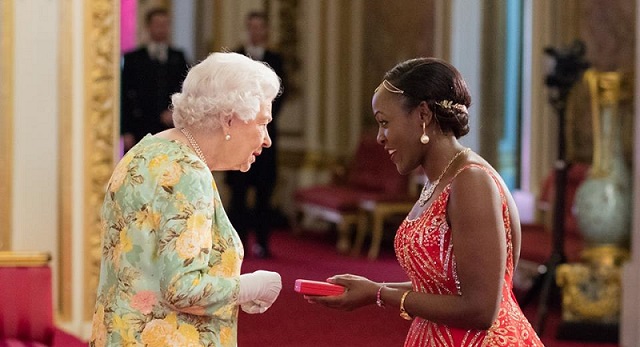
Kampala, Uganda | THE INDEPENDENT | Elizabeth Kasujja is one of the three young Ugandans who recently won the prestigious Queen’s Young Leader award for their community service.
They were awarded in London at a ceremony presided over by Queen Elizabeth of the United Kingdom. The award distinguishes and celebrates exceptional young people from across 53 Commonwealth countries in Asia, Africa, Europe, The Caribbean, and America.
Kasujja was awarded for her fight against mental health related stigma in Uganda under her organisation, Clear Yo Mind (CYM). With technology, Kasujja is able to create secure online platforms for people to express their feelings and access free help from mental health professionals.
“The programme looks out for young people between 18 and 29 years who are doing great things in their community and usually with limited resources,” says Kasujja. About the ward she says “it’s a very humbling experience which gives validation that you get appreciated for the humble work”.
The programme also encompasses a one year fellowship designed to nurture thinking outside the box. “The programme has already impacted on me,” she says, “for instance I have already undertaken a mapping exercise to understand people’s perception about me and my work.”
Individuals with mental health issues and those dealing with perceived stigma reach out to the team at CYM and they embark on a recovery process. And for complicated cases, individuals are linked to psychiatrists and other professionals who guide on a way forward.
“Other people just need to text a message requesting for help, and secure one-to-one appointments with professionals outside of a hospital environment,” says Kasujja. Despite being a professional chemist, Kasujja jumped onto the journey in 2016 after experiencing a series of psychological issues that affected her life.
“It took me long to understand that there was a problem until I realised that something was eating me up from inside”, says Kasujja. “The challenge was that none of the people around me could imagine the problem”.
About the same time, a young man narrowly escaped death after trying to end his life by jumping off a six-storied building in Kampala city.
He later said he faced work related stress, which was exacerbated when he was sacked. This particular incident was the trigger that sparked off debate within Kasujja about how many people share the experience to the extent of contemplating suicide.
The debate would birth probable solutions, including meeting different people who could help with recovering self-esteem. Kasujja established the statistics of people with mental health issues from Butabika Mental Referral Hospital in Kampala.
To her, this was an avenue to diagnose the problem and research into possible solutions. She discovered that Uganda has only 34 psychiatrists for a population of about 40 million people. The usual recommendation is 1:10,000 psychiatrists per population.
That means Uganda needs about 4000 psychiatrists. Kasujja explains that mental health issues; especially depression, stem from a lack of something and one may suffer mental illness once the gap widens. “With our current demands, we work so hard thus ignoring the parenting role,” says Kasujja. Kasujja chose to find a way of ending mental health stigma by building CYM.
Two years later, Kasujja says she has confirmed that her work will get much easier with the passing in parliament of the Mental Health Policy in September after years of waiting. She says the policy emphasis on decentralisation of mental health care implies ability of people to access proper professional mental health even at village level.
Kasujja is an industrial chemist who harboured dreams of becoming a professional pilot. But she failed to raise the required tuition in a flying school. Kasujja was born to Margaret and David Kasujja Kalule. She says, “We had an abundance of love and now that I am older and dealing with mental health issues, I clearly understand how that played a big role in helping us feel like we didn’t lack”.
She went to Kampala Kindergarten, Kampala Parents School, Gayaza High School, King’s College Budo and Makerere University where she pursued a bachelor’s degree in Industrial Chemistry. She also works as a Consultant Business Advisor with the Malaria and Childhood Illness’ NGO secretariat where she initially worked as a programme officer until 2016.
 The Independent Uganda: You get the Truth we Pay the Price
The Independent Uganda: You get the Truth we Pay the Price


